 W
WGheorghe Asachi was a Moldavian, later Romanian prose writer, poet, painter, historian, dramatist and translator. An Enlightenment-educated polymath and polyglot, he was one of the most influential people of his generation. Asachi was a respected journalist and political figure, as well as active in technical fields such as civil engineering and pedagogy, and, for long, the civil servant charged with overseeing all Moldavian schools. Among his leading achievements were the issuing of Albina Românească, a highly influential magazine, and the creation of Academia Mihăileană, which replaced Greek-language education with teaching in Romanian. His literary works combined a taste for Classicism with Romantic tenets, while his version of the literary language relied on archaisms and borrowings from the Moldavian dialect.
 W
WMárton Balázs was a Romanian mathematician of Hungarian descent.
 W
WTraian Brăileanu or Brăilean was an Austro-Hungarian-born Romanian sociologist and politician. A native of the Bukovina region, he attended Czernowitz University, where he studied philosophy and classical languages, subsequently earning a doctorate. Ending up as a translator in Vienna, he fought for Austria during World War I. At the conclusion of hostilities, returned to the renamed Cernăuți, now part of Greater Romania. There, he soon became a professor of sociology, leading a "Cernăuți School" of academics during the interwar period.
 W
WAlexandrina "Didina" Cantacuzino was a Romanian political activist, philanthropist and diplomat, one of her country's leading feminists in the 1920s and '30s. A leader of the National Council of Romanian Women and the Association of Romanian Women, she served as Vice President of the International Council of Women, representing the International Alliance of Women, as well as Romania, to the League of Nations. However, her feminist beliefs and international profile clashed with her national conservatism, her support for eugenics, and eventually her conversion to fascism.
 W
WIon Creangă was a Romanian writer, raconteur and schoolteacher. A main figure in 19th century Romanian literature, he is best known for his Childhood Memories volume, his novellas and short stories, and his many anecdotes. Creangă's main contribution to fantasy and children's literature includes narratives structured around eponymous protagonists, as well as fairy tales indebted to conventional forms. Widely seen as masterpieces of the Romanian language and local humor, his writings occupy the middle ground between a collection of folkloric sources and an original contribution to a literary realism of rural inspiration. They are accompanied by a set of contributions to erotic literature, collectively known as his "corrosives".
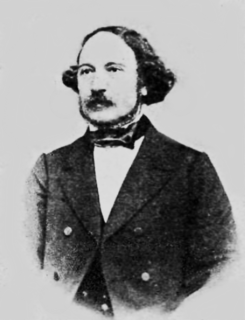 W
WAnastasie Fătu was a Moldavian and Romanian physician, naturalist, philanthropist and political figure, a titular member of the Romanian Academy and founder of Iași's Botanical Garden. Of lowly origins, he benefited from the meritocratic program instituted by Moldavia's government in the 1830s, and went on to study law at the University of Vienna, with hopes of becoming a political economist. After graduating, he changed his professional path, and trained in medicine at the University of Paris. Recognized for pioneering contributions in cardiology, pediatrics, obstetrics and balneotherapy, he was also an early speaker for public health and social medicine, as well as an educational theorist and textbook author. Fătu's career as a professor of natural sciences took him to the Gregorian Institute, the Socola Monastery school, and ultimately Iași University, where he took steps to create a regional medical school.
 W
WBonifaciu Florescu was a Romanian polygraph, the illegitimate son of writer-revolutionary Nicolae Bălcescu. Born secretly outside his parents' native Wallachia, at Pest, he was taken by his aristocratic mother in France, growing up as an erudite Francophone and Francophile. Florescu graduated from the Lycée Louis-le-Grand and the University of Rennes, returning home at age 25 to become a successful lecturer, polemicist, and historian of culture. Influenced by his father's politics, he was for a while a prominent figure on the far-left of Romanian liberalism and nationalism, which pitted him against the conservative society Junimea, and against his own conservative cousin, Prime Minister Ion Emanuel Florescu. The conflict led to his losing a professorship at Iași University and being sidelined when applying for chairs at the University of Bucharest. His critique of Junimist literature, structured around a classical defense of prosody, inspired a libel by Mihai Eminescu—famously depicting Florescu as a "homunculus".
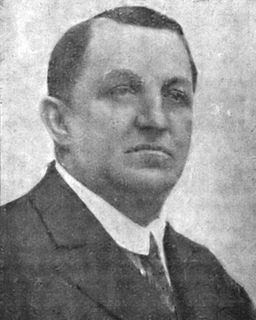 W
WAvram Imbroane was an Austro-Hungarian-born Romanian politician, businessman, and Orthodox priest. Born in the western half of Banat, he was active in nationalist agitation among that region's Romanian community, and later also in Transylvania. By the time of World War I, he supported secession and the unconditional union of Transylvania and the Banat with the Kingdom of Romania. He fled Austria-Hungary and engaged in propaganda work—first in Romania, then among the Transylvanian prisoners-of-war in the Russian Republic. In late 1918, he returned to the Banat and became an active participant in the unionist struggle, participating in the "Great Union Day" assemblies.
 W
WNicolae Iorga was a Romanian historian, politician, literary critic, memoirist, poet and playwright. Co-founder of the Democratic Nationalist Party (PND), he served as a member of Parliament, President of the Deputies' Assembly and Senate, cabinet minister and briefly (1931–32) as Prime Minister. A child prodigy, polymath and polyglot, Iorga produced an unusually large body of scholarly works, establishing his international reputation as a medievalist, Byzantinist, Latinist, Slavist, art historian and philosopher of history. Holding teaching positions at the University of Bucharest, the University of Paris and several other academic institutions, Iorga was founder of the International Congress of Byzantine Studies and the Institute of South-East European Studies (ISSEE). His activity also included the transformation of Vălenii de Munte town into a cultural and academic center.
 W
WIoan Lazăr Kalinderu was a Wallachian, later Romanian jurist and confidant of King Carol I, who served for thirty years as the administrator of crown domains, and for three years as president of the Romanian Academy. Educated in France, he was the son of a rich and influential Greek-Romanian banker, Lazăr Kalenderoglu, and the brother of physician Nicolae Kalinderu. Like them, he was a sympathizer of the National Liberal Party, with which he debuted in politics in the 1880s.
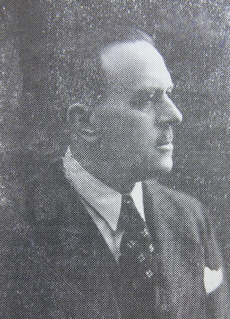 W
WConstantin Kirițescu was a Romanian zoologist, educator and historian. Born and schooled in Bucharest, he occupied successive posts in the Education Ministry, with education being a running theme of his diverse interests. He was among the founders of the Romanian Academy of Sciences.
 W
WBarbu Lăzăreanu was a Romanian literary historian, bibliographer, and left-wing activist. Of Romanian Jewish background, he became noted for both his social criticism and his lyrical pieces while still in high school, subsequently developing as a satirist and printing his own humorous magazine, Țivil-Cazon. Lăzăreanu's youthful sympathies veered toward the anarchist underground, prompting him to associate with Panait Mușoiu.
 W
WUdriște Năsturel, first name also Uriil, Uril, Ioriste, or Oreste, last name also Năsturelovici, was a Wallachian scholar, poet, and statesman, the brother-in-law of Prince Matei Basarab through his sister Elena Năsturel. Together, the three staged a cultural revival centered on Bucharest and Târgoviște. Năsturel had risen through the ranks of Wallachian bureaucracy and had served Radu Mihnea's government in Moldavia, being kept as Logothete by Matei Basarab. In office, he had an international correspondence and went on diplomatic travels through Central Europe, while also overseeing the printing presses. He was the titular boyar of Herăști, known in his day as Fierești and Fierăști, where he built a palace that stands as a late example of Renaissance architecture, and earned him a regional fame.
 W
WGrigore T. Popa was a Romanian physician and public intellectual. Of lowly peasant origin, he managed to obtain a university education and become a professor at two of his country's leading universities. An anatomist by specialty, Popa worked on popularizing modern science, reforming the medical and higher education systems, and, in war hospitals, as a decorated and publicly acclaimed practitioner. His work in endocrinology and neuromorphology was valued abroad, while at home he helped train a generation of leading doctors.
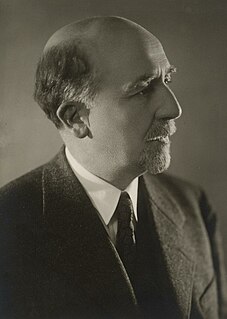 W
WSextil Iosif Pușcariu was an Austro-Hungarian-born Romanian linguist and philologist, also known for his involvement in administrative and party politics. A native of Brașov educated in France and Germany, he was active in Transylvania's cultural life and worked as a Romanian-language professor at Czernowitz in the Duchy of Bukovina. He began his scholarly career in 1906, when he was tasked with compiling a general dictionary of the Romanian language. Interested in a variety of disciplines, Pușcariu published widely and brought new ideas into Romania, as well as overseeing two monumental projects related to the language: advancing his dictionary to the letter "L", and creating an atlas of the language.
 W
WIon Heliade Rădulescu or Ion Heliade was a Wallachian, later Romanian academic, Romantic and Classicist poet, essayist, memoirist, short story writer, newspaper editor and politician. A prolific translator of foreign literature into Romanian, he was also the author of books on linguistics and history. For much of his life, Heliade Rădulescu was a teacher at Saint Sava College in Bucharest, which he helped reopen. He was a founding member and first president of the Romanian Academy.
 W
WFrancisc Iosif Rainer was an Austro-Hungarian-born Romanian pathologist, physiologist and anthropologist. From an immigrant family, he earned early recognition for his experimental work in anatomy, and helped reform Romanian medical science. He spent much of his youth training himself in anatomical pathology and the various areas of natural science, gaining direct experience as a microbiologist, surgeon, and military physician. With teaching positions at the University of Iași and the University of Bucharest, where he established specialized sections, Rainer became a noted promoter of science and an innovator in his field. He notably favored and introduced the anatomical study of "functional structures", and was in particular preoccupied with issues pertaining to ontogenesis and kinesiology. An intellectual influence on several generations of doctors, his wife was Marta Trancu-Rainer, Romania's first female surgeon.
 W
WMihai Dumitru Ralea was a Romanian social scientist, cultural journalist, and political figure. He debuted as an affiliate of Poporanism, the left-wing agrarian movement, which he infused with influences from corporatism and Marxism. A distinguished product of French academia, Ralea rejected traditionalism and welcomed cultural modernization, outlining the program for a secular and democratic "peasant state". His ideology blended into his scholarly work, with noted contributions to political sociology, the sociology of culture, and social and national psychology. He was a professor at the University of Iași and, from 1938, the University of Bucharest.
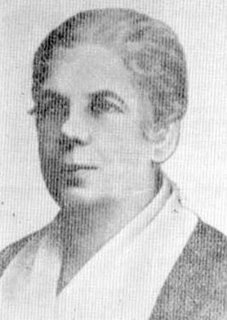 W
WIzabela Sadoveanu-Evan was a Romanian literary critic, educationist, opinion journalist, poet and feminist militant. She spent her youth advocating socialism, and rallied with left-wing politics for the remainder of her life, primarily as a representative of Poporanist circles and personal friend of culture critic Garabet Ibrăileanu. Under Ibrăileanu's guidance, Sadoveanu wrote for Viața Românească review, where she tried to reconcile ethnic nationalism and traditionalism with aestheticism. As literary critic, she championed the recognition of Symbolism as an independent cultural phenomenon, and reviewed modern developments in English literature.
 W
WScarlat Vasile Vârnav, or Sofronie Vârnav, was a Moldavian and Romanian political figure, philanthropist, collector, and Orthodox clergyman. The scion of an aristocratic family, he was made to study for a career in the church, but fled Moldavia and studied abroad. Acquainted with the Romanian liberal movement, and an ardent Romanian nationalist, he helped establish bodies of intellectuals dedicated to cultural and political cooperation across the Danubian Principalities and beyond—including, in 1846, the Romanian library of Paris. His purchase of mainly Baroque paintings, donated by him to Academia Mihăileană, forms the core of the Iași Museum of Art.
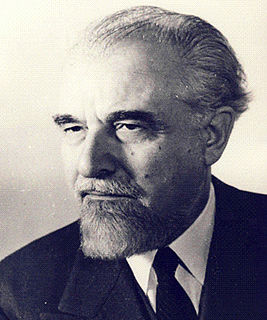 W
WȘtefan Voitec was a Romanian Marxist journalist and politician who held important positions in the state apparatus of Communist Romania. Debuting as a member of the Socialist Party of Romania in his late teens, he formed the Socialist Workers Party of Romania, then the United Socialist Party, while also engaging in human rights activism and advocating prison reform. The mid 1930s brought him into contact with the Romanian Communist Party, with whom he formed tactical alliances; however, he rejected its political line, and was for a while known as a Trotskyist. In 1939, he joined the consolidated Social Democratic Party, which reunited various socialist groups outlawed by the National Renaissance Front. During World War II, despite ostensibly withdrawing form political life to do research, Voitec served as the party's Secretary and joined the anti-fascist underground. Some reports suggest that he was also a committed anti-communist, critical of the Soviet Union to the point on endorsing war in the East. As a war correspondent, Voitec made contributions to Nazi propaganda, an issue which made him vulnerable to blackmail in later decades.